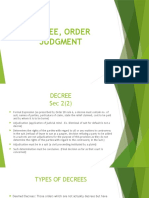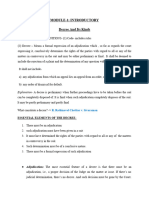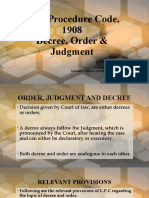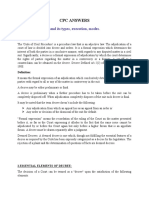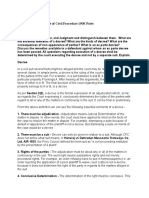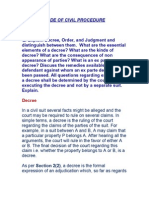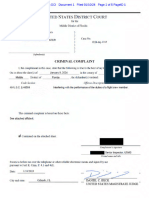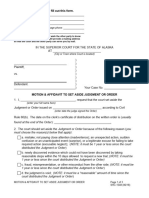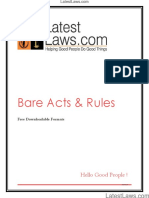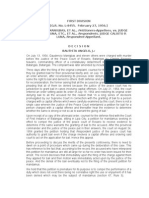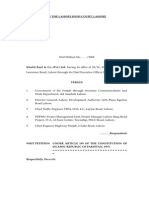0% found this document useful (0 votes)
8 views9 pagescpc2 Unit 1 Question Answer
The document discusses the concepts of 'Judgment' and 'Decree' under the Code of Civil Procedure, 1908, detailing their definitions, essential elements, types, and procedures. It emphasizes the importance of decrees as formal adjudications that determine the rights of parties in civil matters, while judgments provide the reasoning behind court decisions. The document also outlines the rules for the pronouncement and contents of judgments, highlighting the procedural aspects necessary for effective legal adjudication.
Uploaded by
kalsishinuCopyright
© © All Rights Reserved
We take content rights seriously. If you suspect this is your content, claim it here.
Available Formats
Download as DOCX, PDF, TXT or read online on Scribd
0% found this document useful (0 votes)
8 views9 pagescpc2 Unit 1 Question Answer
The document discusses the concepts of 'Judgment' and 'Decree' under the Code of Civil Procedure, 1908, detailing their definitions, essential elements, types, and procedures. It emphasizes the importance of decrees as formal adjudications that determine the rights of parties in civil matters, while judgments provide the reasoning behind court decisions. The document also outlines the rules for the pronouncement and contents of judgments, highlighting the procedural aspects necessary for effective legal adjudication.
Uploaded by
kalsishinuCopyright
© © All Rights Reserved
We take content rights seriously. If you suspect this is your content, claim it here.
Available Formats
Download as DOCX, PDF, TXT or read online on Scribd
/ 9










